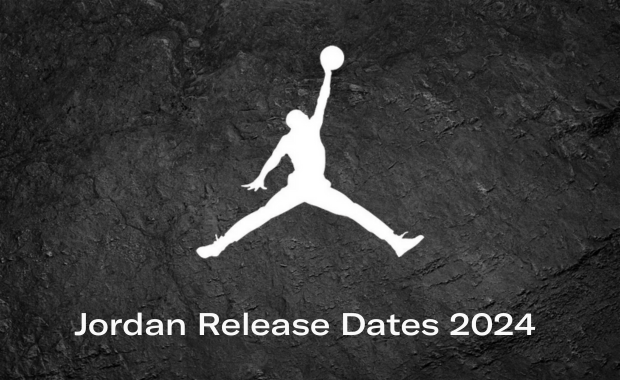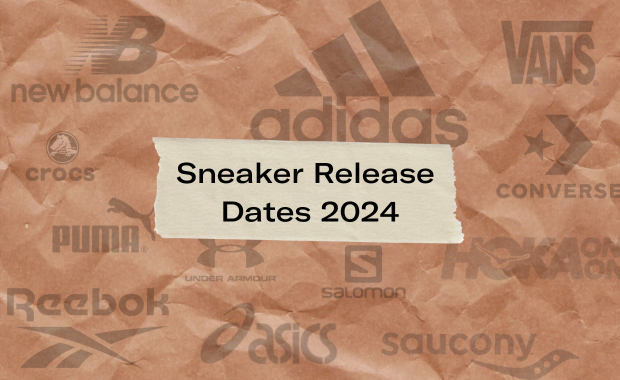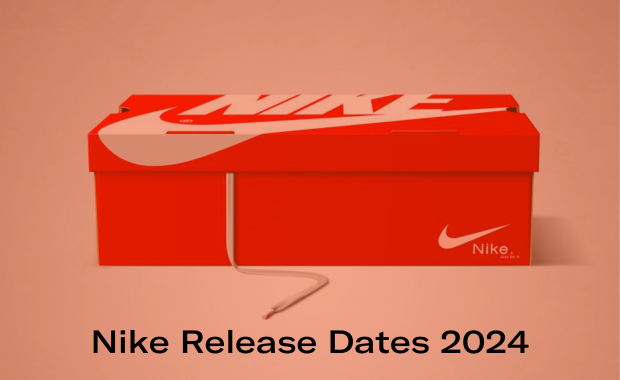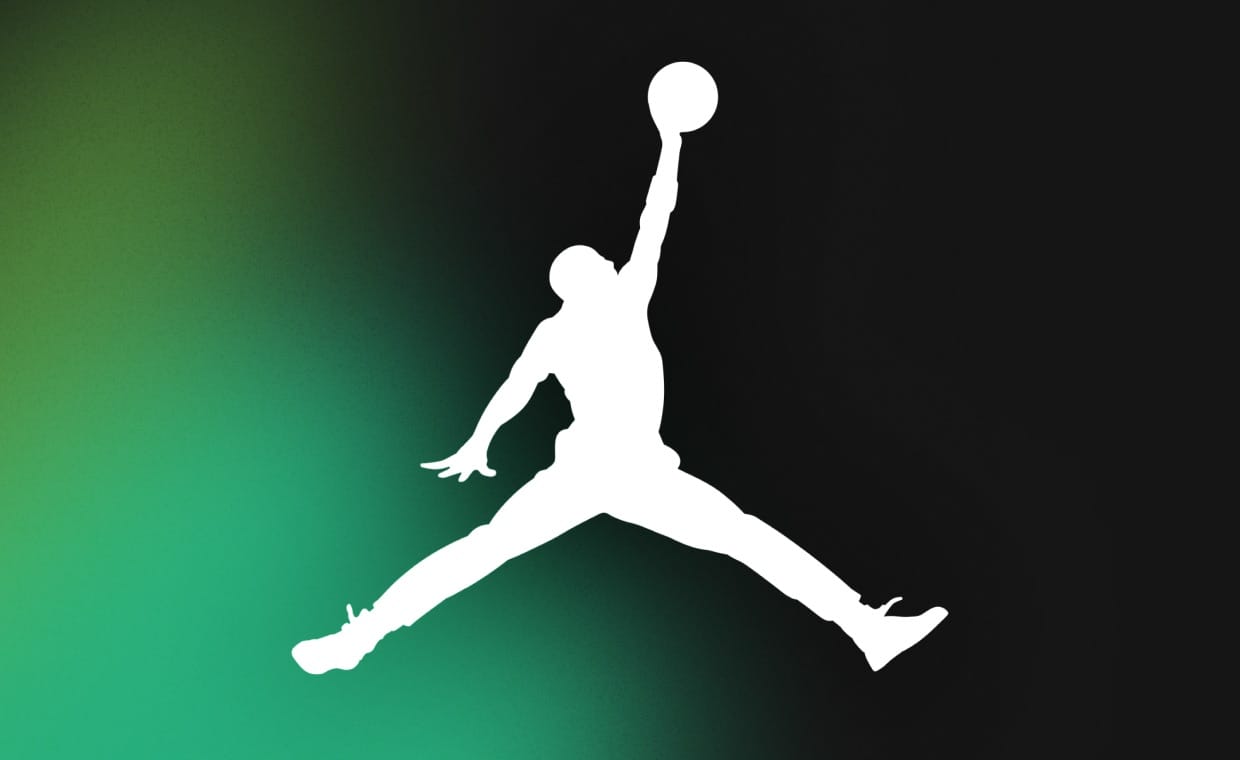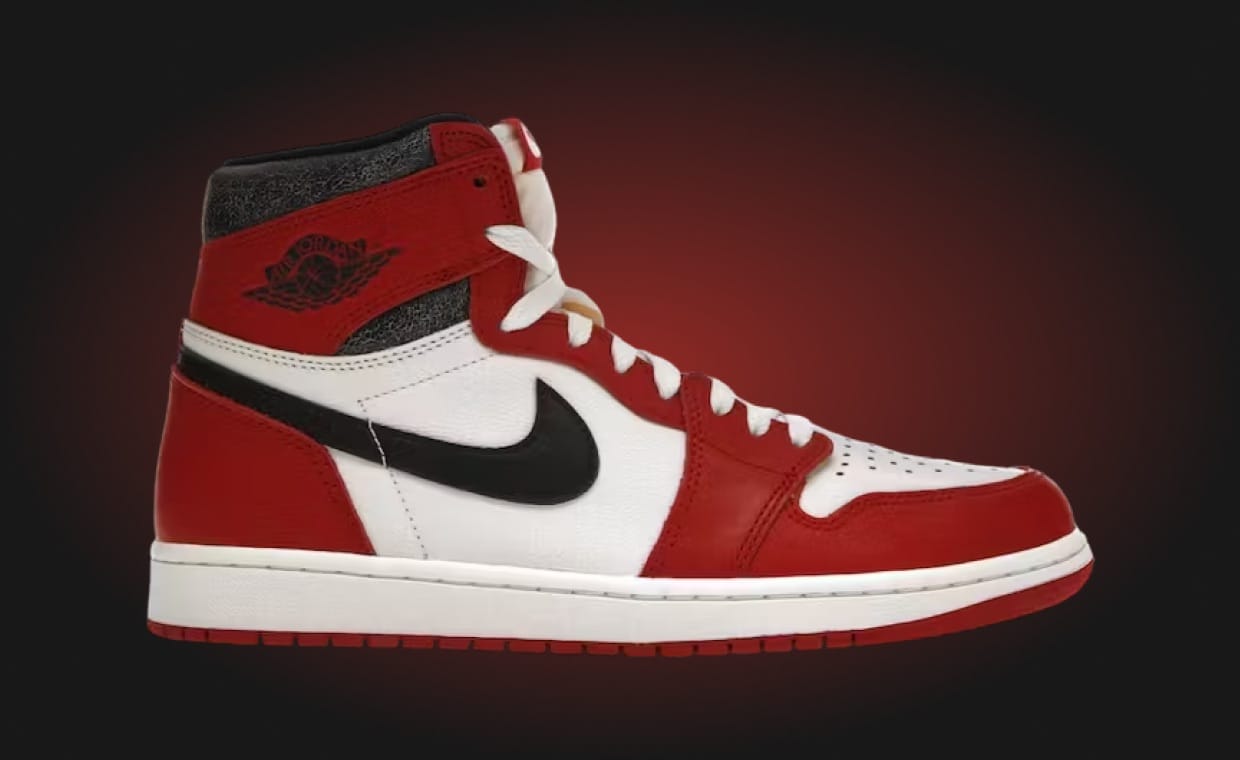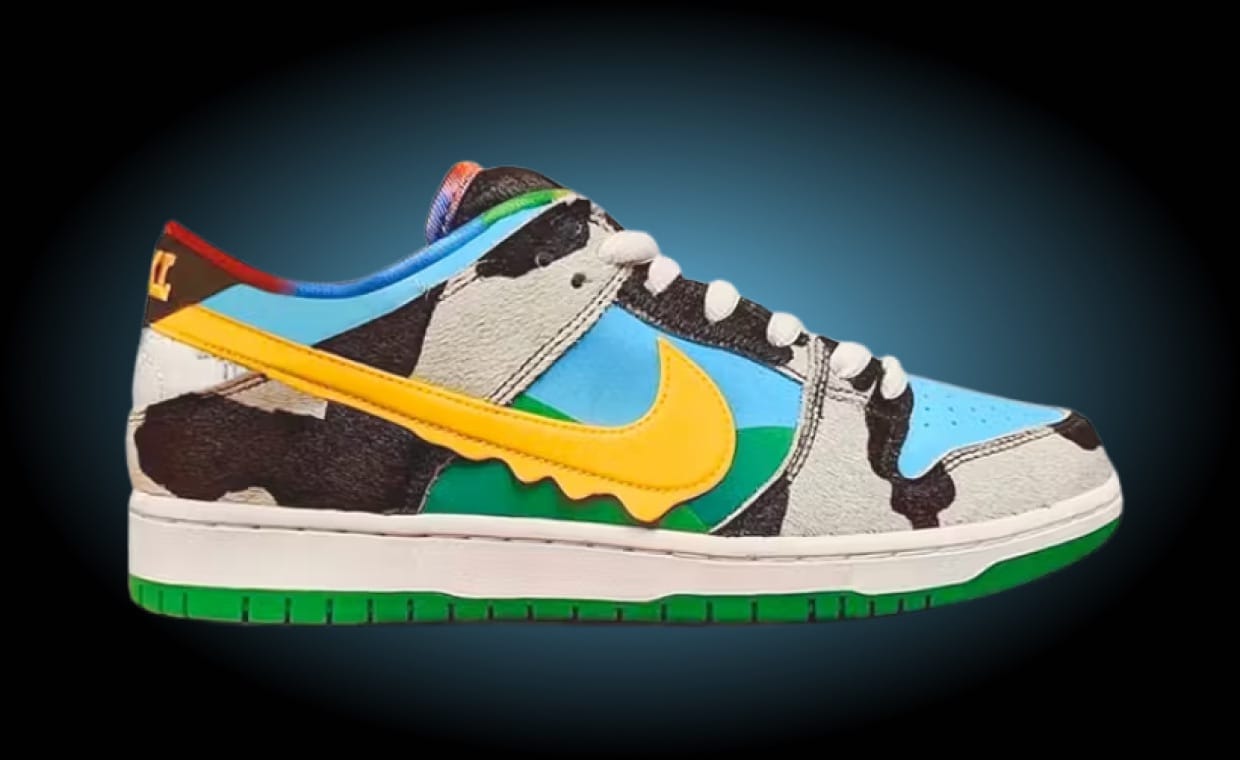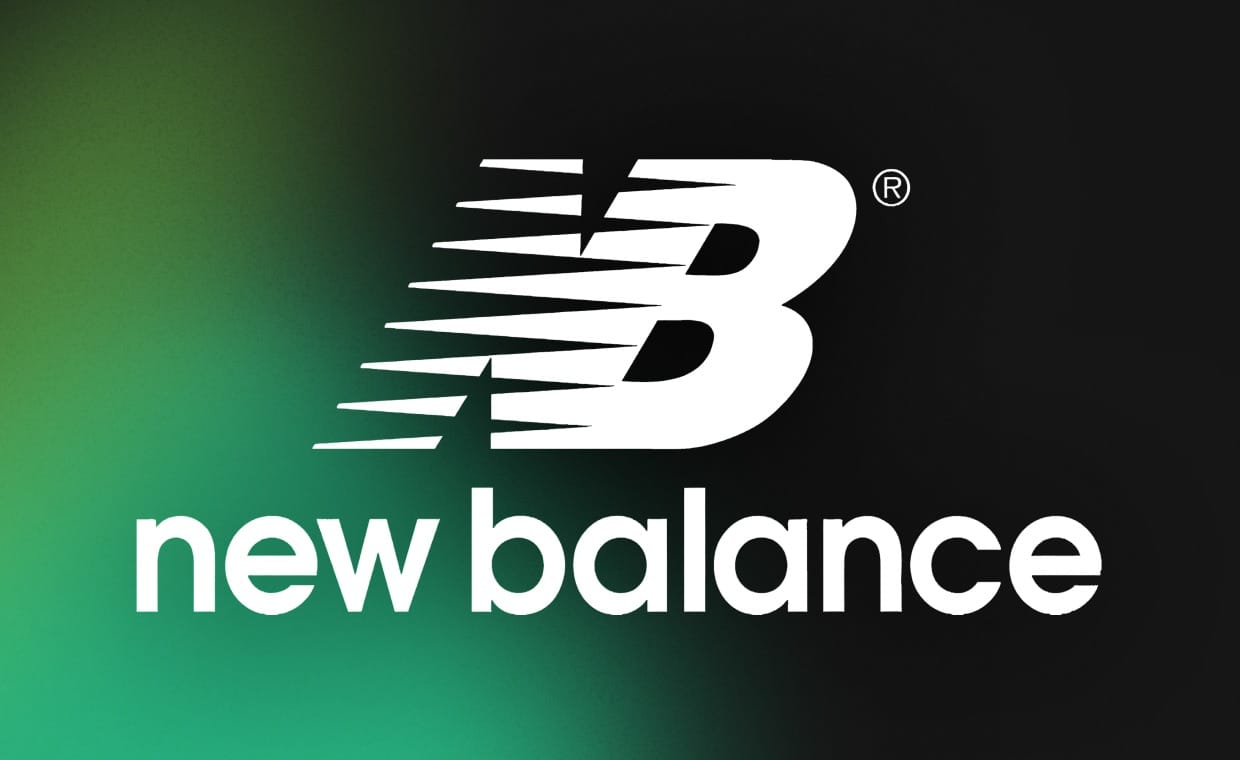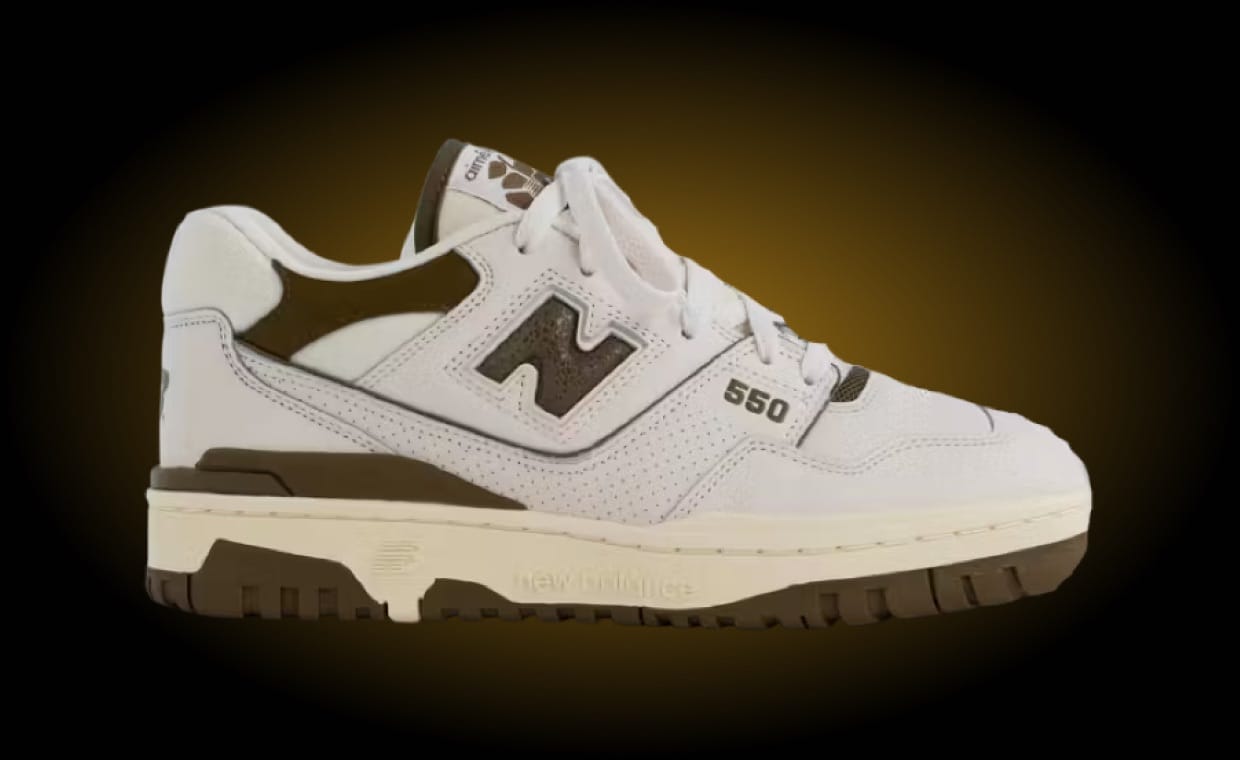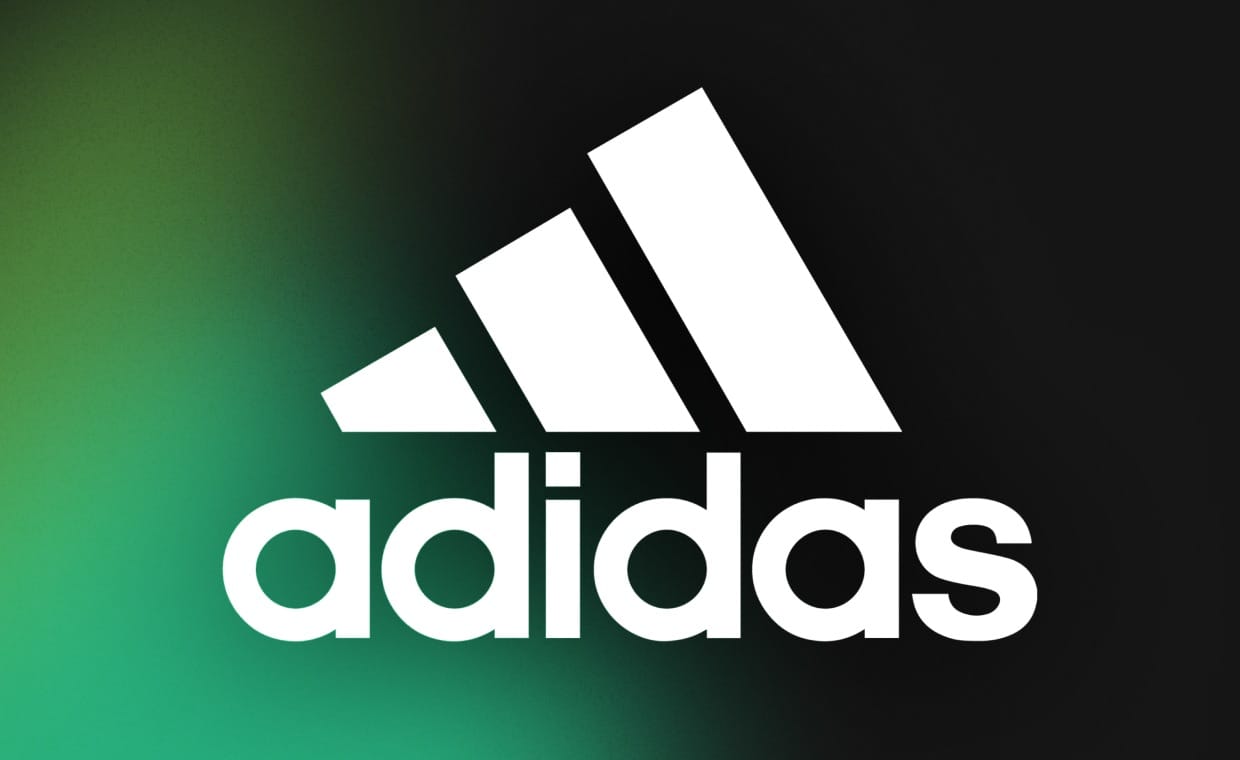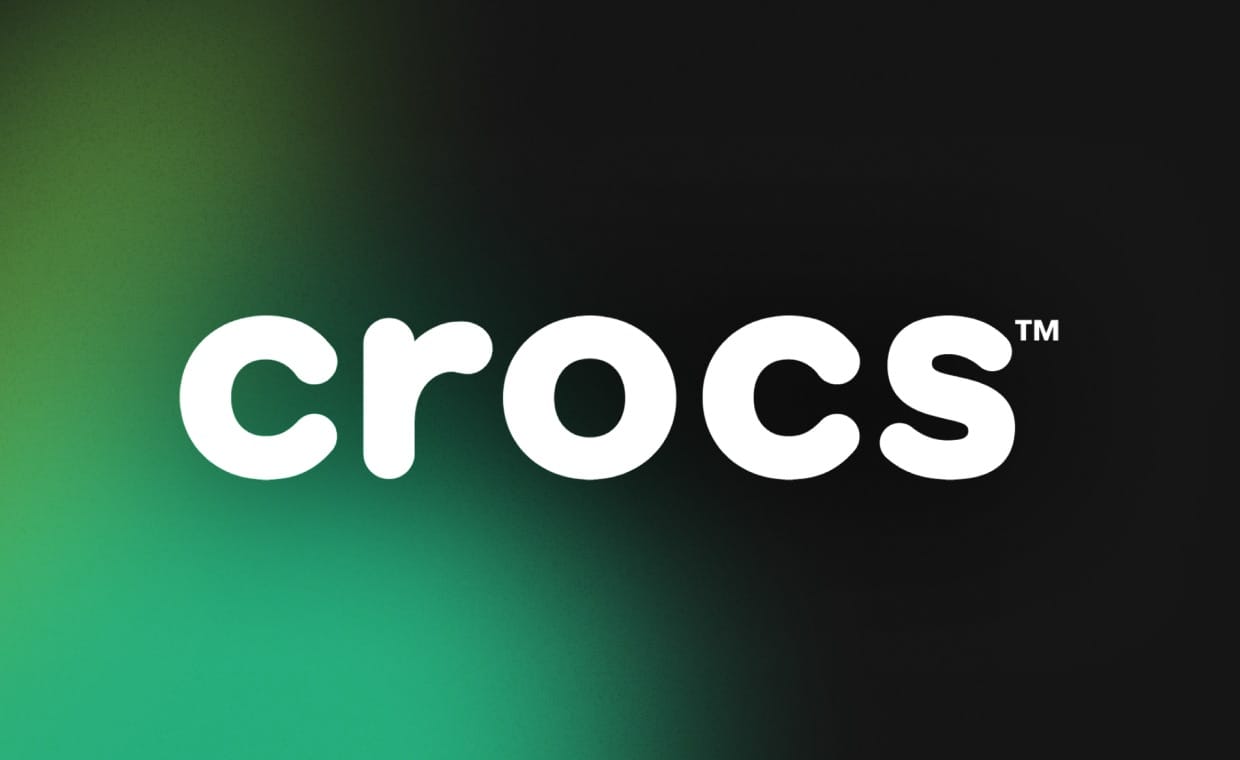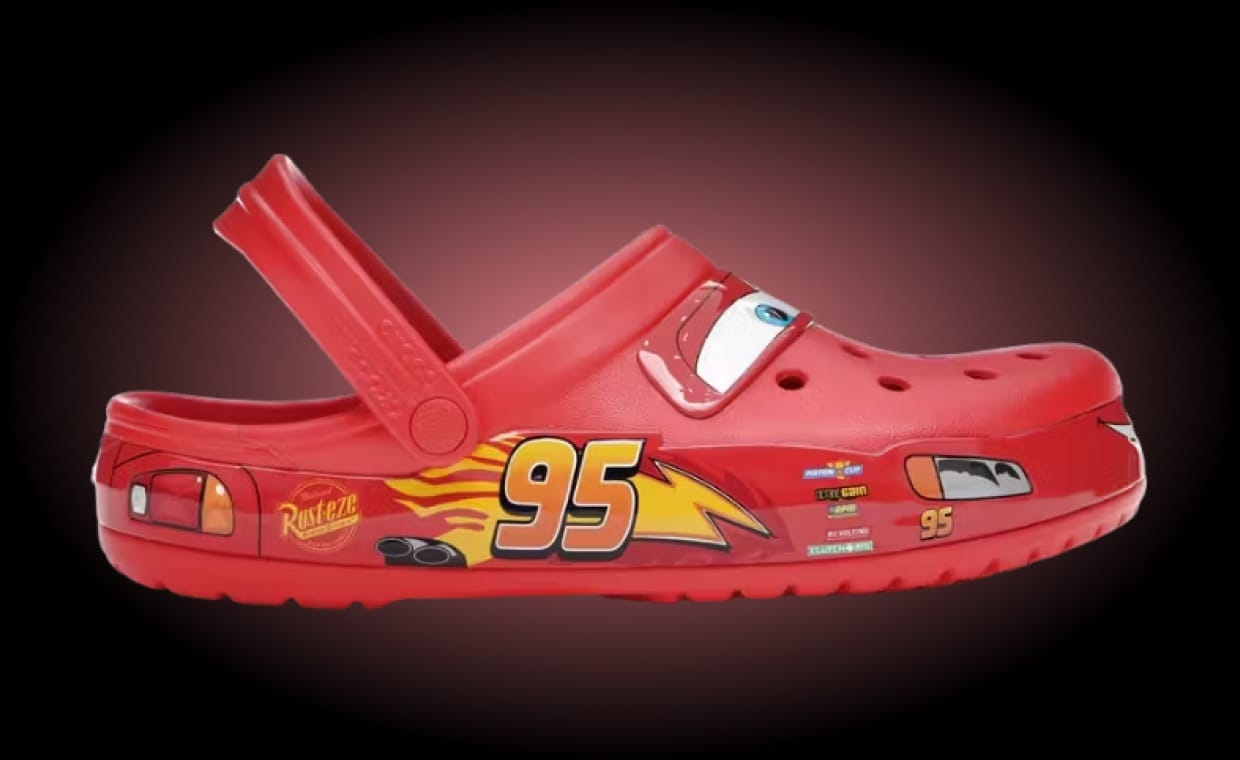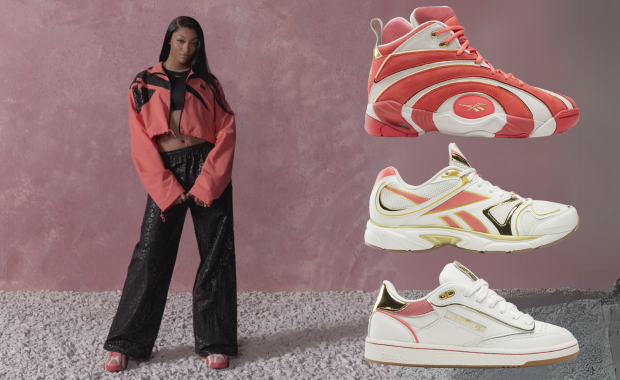What Makes Rep Sneakers Tick On TikTok
Published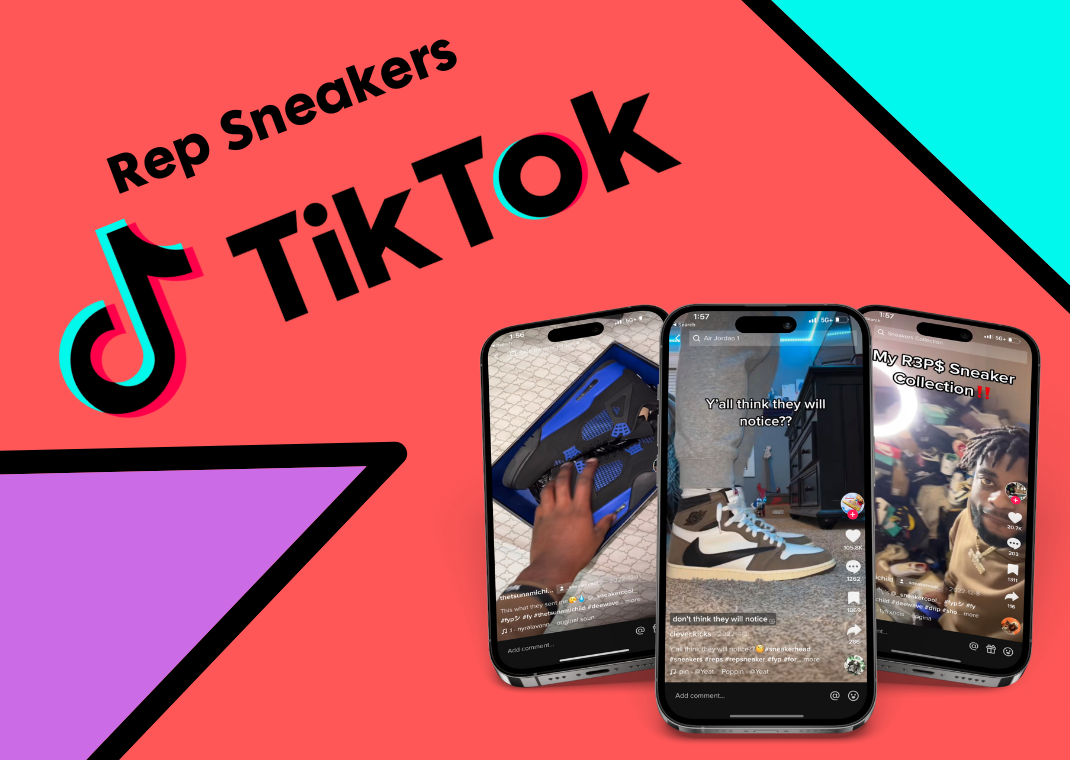
Origin/Background
Fake sneakers, also known as "replicas" or "knockoffs," have been a part of the fashion world for decades. The origins of these fake sneakers can be traced back to Canal Street in New York City, where street vendors have long sold knockoff designer merchandise.
Throughout the '90s and early 2000s, buying replica sneakers on Canal Street was a popular activity for tourists and locals alike. The vendors on Canal Street were known for selling counterfeit versions of popular sneaker brands, such as Nike and adidas. These replica sneakers were often made with cheaper materials and lacked the attention to detail and craftsmanship of the real thing. In some cases, these sneakers were blatant fakes that manufacturers like Nike or Louis Vuitton never even produced, while others would sometimes mimic a legitimate model/colorway.
As the internet became more prevalent, the market for fake sneakers moved online. Forums such as Reddit and other online marketplaces became popular places to buy and sell replica sneakers. Online secondary marketplaces for buying authentic products like StockX caused these forums to grow in popularity, as the sneaker scene went mainstream and sneakers began being viewed as an asset rather than part of a niche subculture. Readily available real-time pricing paired with the growth in the sneaker market caused popular sneakers to become harder to get at retail prices. Thus, if someone was after a certain drop but wasn’t lucky enough to score a pair for retail, they had to either pay high resale pricing or buy reps.
In order for someone to go with the latter option, they need to learn where and how to buy these knockoffs. It’s not as straightforward as going online and adding a pair to cart - most come from overseas and don’t ship directly to the US. Forums and YouTube how-to’s helped, but required people to know what they were looking for… Enter TikTok. TikTok’s algorithm and short form content delivery has allowed millions of sneaker enthusiasts to easily come across rep sneaker pages that break down everything from how to buy reps to what manufacturers have the best “1 to 1” models, making it the premier venue for the rep sneaker community.
Disclaimer: Sole Retriever is NOT in any way supporting or promoting replica/fake sneakers. We are providing guidance and insight for people that might not have the full knowledge to tell reps from real sneakers. This is story is purely educational; all readers can do so with this information as they please.
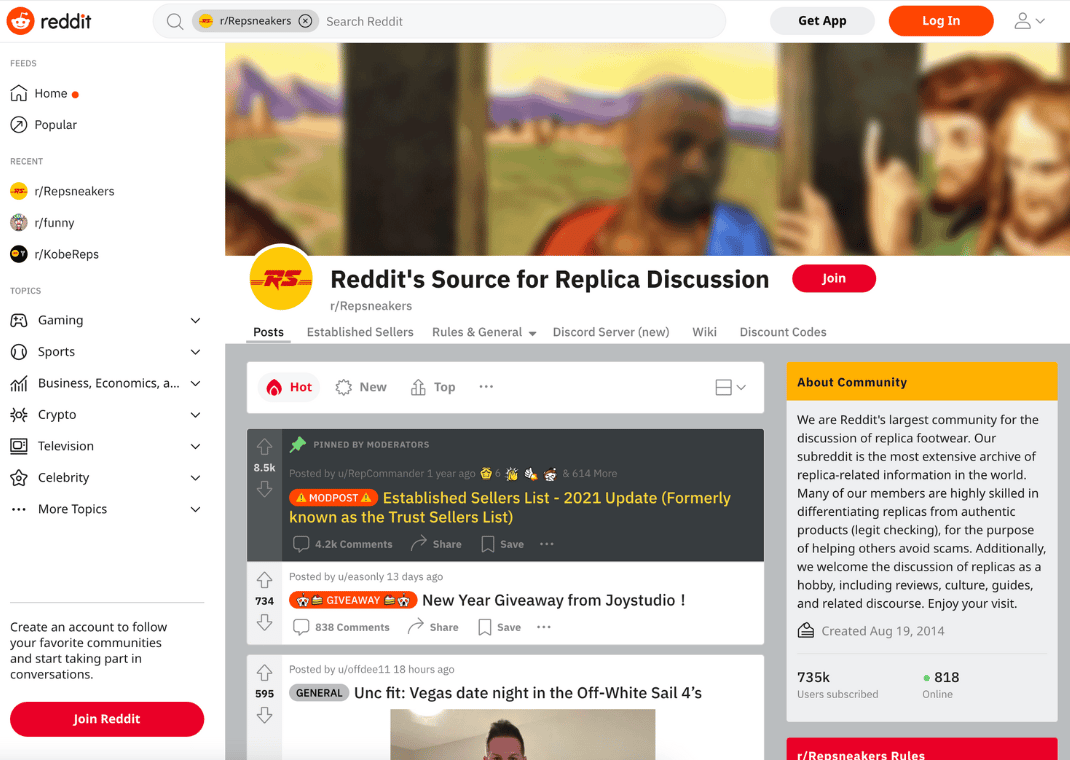
The Rise of the Rep Community on TikTok
During the Pandemic, TikTok’s user base grew exonentially, spawning millions of influencers and creators whose followers look to them for guidance and insight on just about any topic you could imagine. Rep sneaker manufacturers/agents that can facilitate the sale of fake sneakers have tapped into this. With a sophisticated algorithm that adapts to one's tastes and access to a social network spanning the globe, users that have consumed sneaker content have likely been exposed to accounts or live streams that have promoted fake sneakers before.
These accounts are often showcasing products on their profiles with links to specific sellers or providing discount codes for agents like WeGoBuy, PandaBuy, or SugarGoo (who we’ll touch on later in this piece). Unlike platforms like YouTube, TikTok has a more liberal policy when it comes to counterfeit goods and often overlooks individuals who promote the sale of these products.
TikTok's rise in popularity during the pandemic happened in parallel to the heightened prices of sneakers in the secondary market (not to mention the pre-existing difficulty of securing a pair for retail), creating a perfect storm for the businesses that drive fakes and those looking for a cheaper alternative to the real thing.
The Rep Sneaker Business
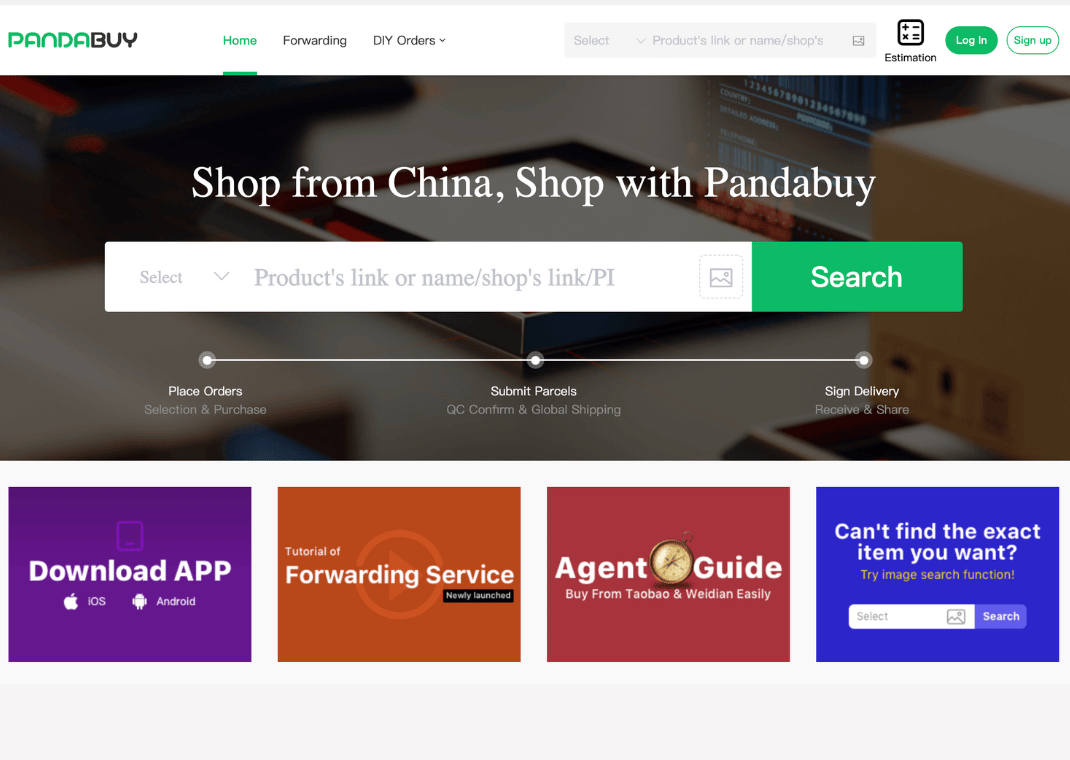
Any account or influencer on social media who garners a large enough following has the ability to generate profit from pushing products, affiliate links, or services to their large audiences. And those in the TikTok scene are no exception. Specifically when it comes to replica sneakers, many influencers have deals with large agents and sellers who then provide the influencer a discount code or affiliate link to share with their audience. Livestreams have also been utilized to promote specific sellers or agents who will showcase products like a quasi-QVC program. For both parties, it's a lucrative business. Rep makers/agents draw new customers and influencers are provided with a steady stream of income and/or seeded free replica products. The promotion and sale of rep sneakers involves a few different businesses:
- Rep Agents (Facilitator)
- Rep Sellers (Manufacturers and Sales)
- Rep Sneaker Influencers (Promoters - can sometimes be the rep sellers themselves)
All of the aforementioned parties and their audiences are often referred to as RepTok. First, there are agents who are essentially middlemen and purchase products from local sellers in China on behalf of those looking to acquire fakes. The agents package the products, and ship them overseas (for a fee of course). Some of the larger players in this space include WeGoBuy, SugarGoo, and PandaBuy, the latter of which has employed a large influencer marketing campaign across TikTok.
Next up, we have the rep sellers, whose operations vary in size. To get a better understanding of the inner workings of these businesses, we reached out to a couple of influencers who have worked with these sellers and agents in the past.
“Only a couple of factories produce; the whole system is so corrupt. It’s so deep. From what I know, a seller pops up posing as a new ‘batch’ [A batch is essentially a blueprint for creating a sneaker/colorway] but that batch was already an established one from another factory,” Tripping, a YouTube content creator who formerly focused on replica content, said. “All of the sellers are very intertwined with each other."
This was in regard to lower-level sellers who may reach out to potential customers on Instagram. However, when it comes to the larger scale sellers, they don’t necessarily go to TikTok to promote their items. Instead, most large scale sellers use forums like Reddit where they have built solid enough reputations that they are deemed as “Established Sellers.”
Looking at TikTok videos from big influencers/creators in the space like Cedaz, myfitsaretrashngl, and gillyreps you’ll see each showcasing various replica items (often of very popular and/or “limited” products) while detailing the quality of the item. Many of these videos are dubbed “hauls" and framed in ways to promote the agent they are partnered with, utilizing titles such as, "35kg PandaBuy Haul."
These large purchases of replica products range from apparel pieces like Kapital jackets to ultra-grail-status sneakers like the Kanye West x A Bathing Ape Bape Sta “The College Dropout.” At the end of many videos, the influencers either direct you towards their Google spreadsheet with links to purchase the items, give out a discount code for the agent that sponsors them, or a combination of both.
To answer some questions surrounding the legality of promoting replica sneakers, we reached out to Zak Kurtz of @sneakerlegal who provided us with some insight. Those buying replica sneakers are likely safe according to Zak, who told us that “The US Department of Justice actually stated that federal laws would not prohibit someone from buying a counterfeit sneaker or product for personal use.” However, Kurtz did also state that “by facilitating the sale of these products, others in the chain could be found liable” and face legal consequences, including those who promote them on platforms like TikTok.
How Much Rep Sneaker Influencers Make
The amount of money that influencers are able to generate from promoting reps varies. According to YouTube content creator, Tripping, (who has removed himself from the rep promotion scene), “Low follower accounts will reach out to you and provide free replica sneakers in exchange for promoting their website.” He went on to explain how most RepTok influencers secure deals with rep sneaker sellers and/or agent, “For them to recognize that you’re actually valuable to promote [for the seller], you would have to use a code. It would be an affiliate link.” Tripping also mentioned that some large RepTok influencers in the scene earn upwards of $10,000 a month by being partnered with agents and rep sneaker sellers.
When speaking with Cedaz, another one of the larger creators in the space, he told us that, “If you just want to get free shoes, it’s not hard to get free shoes. It depends on where your morality is and where you want to take this content creation to. If you want to just end with promoting replicas, your account will be banned.” He and other creators in this space have had their accounts banned multiple times for promoting reps. On other social media platforms like YouTube, the policy regarding the promotion of counterfeit goods is much more strict. For instance, Harrison Nevel, a large creator in the sneaker space, had to remove a video due to him comparing replica sneakers to retail pairs. For TikTok, its terms and conditions do not explicitly contain language prohibiting counterfeit goods in videos on the platform. However, these products are banned from the TikTok Shop (which isn't utilized by replica promoters).
Again speaking with Cedaz, “For somebody who has a really well established following and is a really good salesperson, you can make five figures a month easily doing this.” He’s had a deal with PandaBuy for a little over a year at this point and has become a top influencer for the agent and has also worked with various sellers from China. “For me, I can sort of pick or choose [how I work with agents/sellers],” continuing, “For the most part, it’s mainly affiliate modeling. They would want you to earn commission via your sign-ups.”
While many RepTok influencers are paid on sign-ups through affiliate links, agents such as SugarGoo, PandaBuy, and WeGoBuy may also pay RepTok influencers flat rate plus commission for promoting their services/products. Cedaz, at one point, was working with SugarGoo, however, once his deal ended, he eventually moved over to PandaBuy (though exactly what caused this was never stated in our talks). Specific figures and the details behind his deal were not discussed or disclosed.
It may sound simple enough. Promote sneakers, grow an audience with your personality, and then rake in the big bucks. However, it’s not that simple according to Cedaz. “You’re probably not going to get [the five figures a month] only because of how business in China works.” Just because you may have a viral TikTok and get approached to promote reps doesn’t mean it will last long term. Cedaz told us that agents “only care about numbers” and want to see consistent output alongside consistent growth. Poor performance, even if you sign a contract, could lead to the business withholding payments from you. Considering that selling counterfeit products is illegal and you would be dealing with parties in China, taking legal action to get the money that is “owed” to you is virtually impossible.
Even still, plenty of influencers have made some pretty serious money. The money may be good, but promoting counterfeit goods with international fly by night organizations seems risky. To dig deeper into the risks associated with promoting replica sneakers we asked Zak Kurtz his thoughts on how individuals are circumventing legal trouble on this topic, he stated that “There are many layers to get caught in legally, though “If someone is unaware that the products in question are counterfeit or replicas, that could be a possible defense.” In most cases, "RepTok" influencers are well aware of the products they are pushing and don't try to hide that fact from their audiences. So the short answer is, there is a chance that these influencers could get into legal troubles for promoting fakes...
What’s The Future of Rep Sneakers?
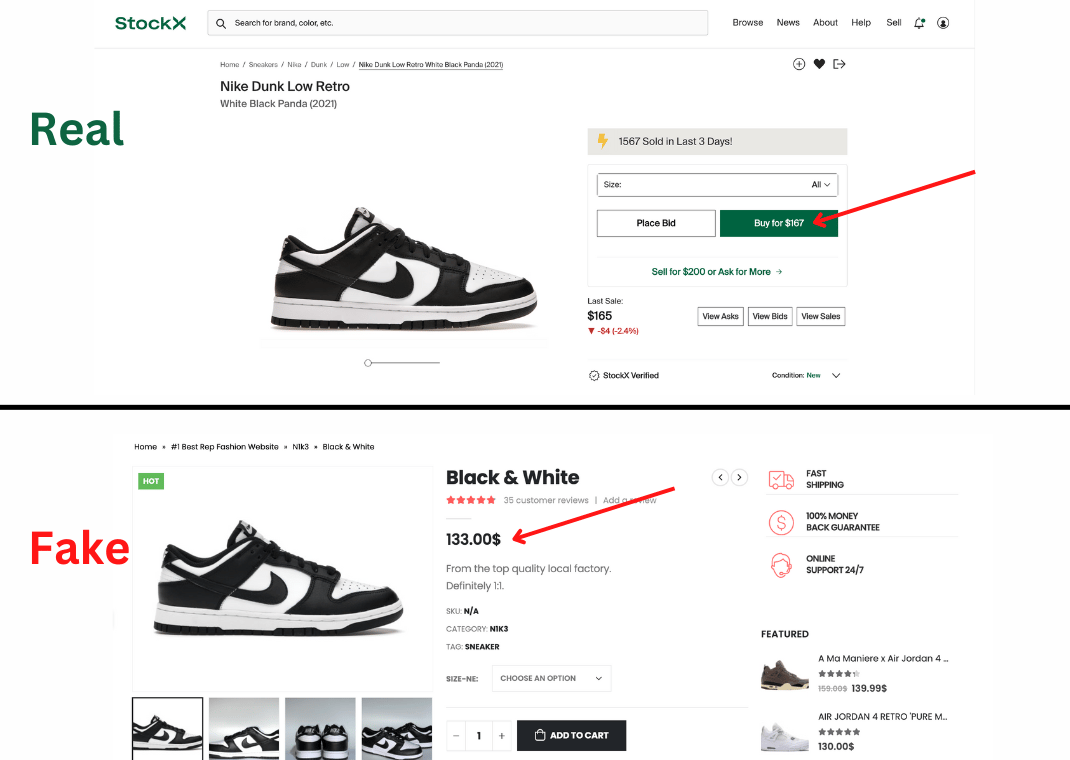
During the pandemic, sneaker demand spiked, causing scarcity and driving up secondary market pricing. In hand, this pushed some consumers to look to cheaper, plentiful reps. Now, the sneaker market is beginning to return to its pre-pandemic levels. According to Business Of Fashion, the footwear industry is cooling off. For example, in 2022, sneaker sales growth increased 2.7% compared to the 19.5% spike in 2021.
While we don’t have specific sales data for replica sneakers, we expect to see the market rebalance. Tripping believes this already happened, independent of the market cool-down. In his eyes, the replica sneaker market has always been a shady business and will only continue to “get worse." At the end of the day, paying $20 over retail for general release dunks is safer, easier and faster than trying to buy the same replica from overseas.
On the flip side, Cedaz sees a much brighter future for reps stating, “People will see the benefit of losing attachment to material items the more and more they get better and popularized. I see Nike forcing themselves to make their shoes different. They will have to combat botting, use better qualities, and really attempt to keep their buyers' loyalty or else they'll go buy reps.”
Major brands like Nike, adidas, and New Balance have been fighting replica sneakers for decades and that fight isn’t likely to end any time soon. From the perspective of Zak Kurtz, “I think the industry is aware of the rise of counterfeit products and will continue to adapt as counterfeits become better. Counterfeits will always be there. Brands, marketplaces, and resellers are acting to stop counterfeits and those who sell them by taking legal action, filing lawsuits, and updating online sales Terms of Service."
In the end, replica sneakers aren't going away. More likely, consumers will purchase general release sneakers on release day and secondary markets but still seek out replicas for the most exclusive and expensive shoes.

Sneakerhead from South Florida who turned his passion into a career. When not writing for Sole Retriever, I enjoy attending concerts and catching the latest movies. Email: nick@soleretriever.com
